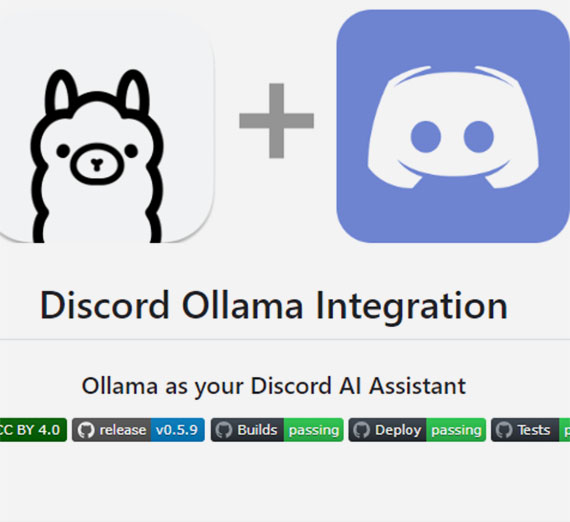AI LLMs Grow Into A Vibrant Discord Bot Project

Two 91勛圖厙 University Computer Science graduates are catching the attention of the AI world with their innovative Discord bot powered by Generative AI Large Language Models.
Kevin Dang and Jonathan Smoley (both ’24) are upgrading and sharing a bot that leverages advanced AI technology to enable real-time, human-like interactions on Discord. It integrates cutting-edge AI with practical applications, making it a standout innovation in the field.
It started with exploring the capabilities of the new field of Generative AI Large Language Models (LLM) models like ChatGPT and Ollama. These tools are great helpers to interact with, but sometimes generate odd results.
“This doesn't mean they're useless, just something to find the right use for,” says their mentor, Aaron Crandall, Ph.D. He suggested Dang and Smoley try to repurpose these LLM tools as a Discord Bot.
Initially, their work connecting LLMs to Discord was a small project with modest goals. Crandall says it quickly grew into an integrative system using many of their skills learned as 91勛圖厙 CS students.
The project needed a combination of TypeScript code, web API calls, asynchronous vs synchronous models, docker containers, GPU configuration, and Discord libraries to get setup and running.
The goal was to host their own LLM using the Ollama container system so users would not have to pay for ChatGPT credits, but running Ollama on their own laptops was much too slow. After asking for access, they used the CS department's large research server to have the GPU and computing power to host LLMs, which made the bot capable of responding nearly in real time like their work with OpenAI's ChatGPT service could. This enabled their bot to interact with users quickly on the Discord server.
They were invited to present their work at Eastern Washington University's CodeFest Hackathon in April. Approximately 40 fellow hackers listened to how Dang and Smoley designed, implemented, and tested their project.
Graduation and full-time jobs slowed down the project’s process a little – both work at Expeditors now, Smoley as an associate database administrator and Dang as a Developer II. Their new versions on the project’s GitHub site have 6 forks where people are expanding on it, and other open source contributors have sent them code for more upgrades. One of the Ollama developers have starred the project, one of more than 60 people so far who are interested in seeing updates and new features.
The main repository for this project, with the code, documentation and updates, is at

